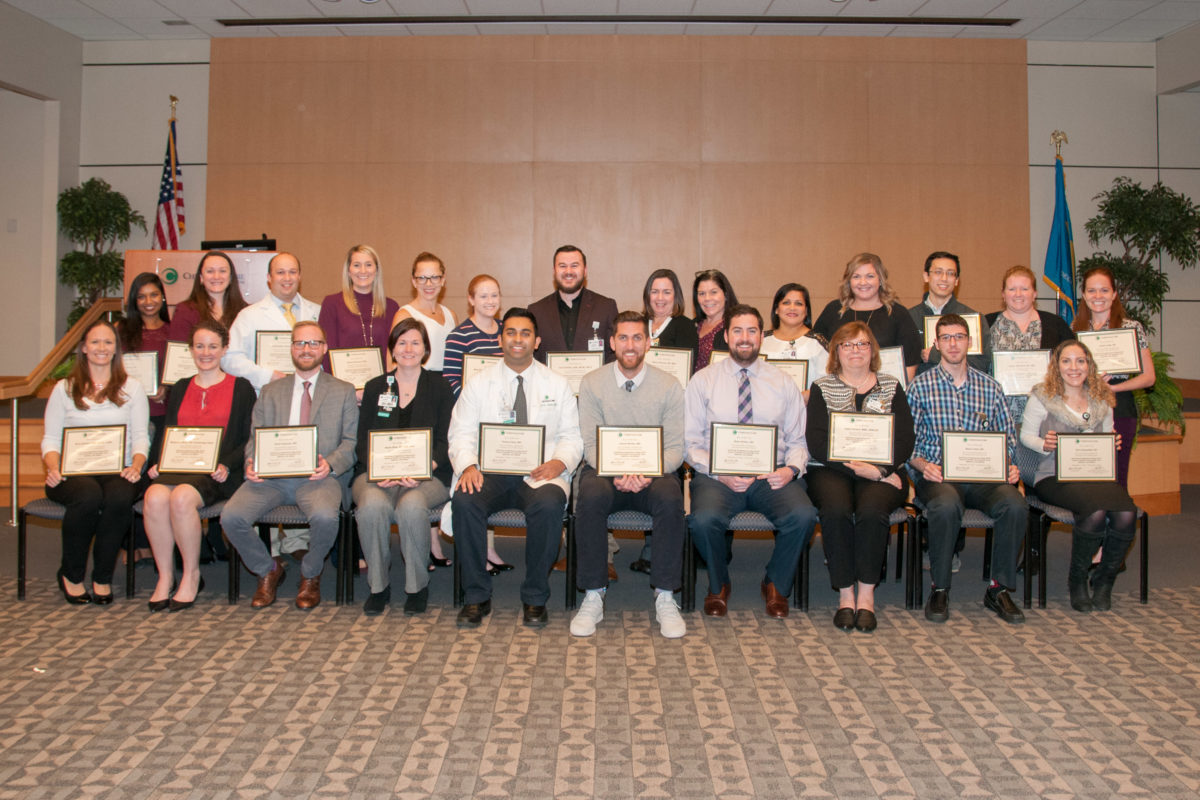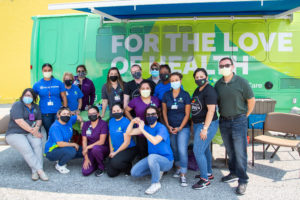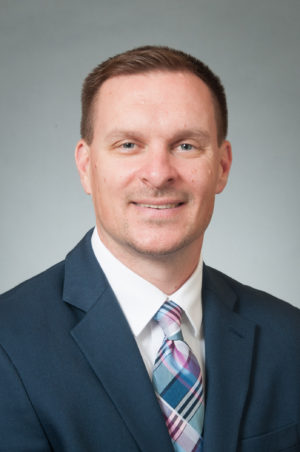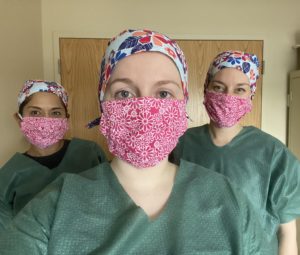Achieving Competency Today: Issues in Health Care Quality, Cost, Systems, and Safety (ACT), one of Christiana Care’s graduate-level improvement science courses sponsored by the Institute for Learning, Leadership and Development (iLead) and targeted to resident physicians, nurses, and other health professionals and staff, held its fall graduation Dec. 6 at the John H. Ammon Medical Education Center.
Edmondo Robinson, M.D., MBA, chief transformation officer and senior vice president, consumerism, welcomed audience members and congratulated the ACT program teams for advancing The Christiana Care Way and serving together through their systematic, interprofessional team approach to problem solving.
“The ACT course supports key elements needed to transform health care,” said Dr. Robinson, as he congratulated Primary Care Quality and Safety Fellow Jeremy Cristol, M.D., the newest member of the ACT course team of facilitators.
“We encourage you to use the knowledge and skills you have learned to continue to advance The Christiana Care Way, demonstrating our core values and behaviors,” Dr. Robinson said.
The graduates also were congratulated by Omar Khan, M.D., MHS, FAAFP, Christiana Care’s physician leader for partnerships and academic programs, and president and CEO of the Delaware Health Sciences Alliance.
“Creating successful change is built on relationships and shared vision — and that’s what you are doing,” Dr. Khan said. “Your teams of extraordinary people clearly demonstrate serving together with excellence and love. These ACT projects are value added for the organization and for those we serve.”
The three teams presented their projects:
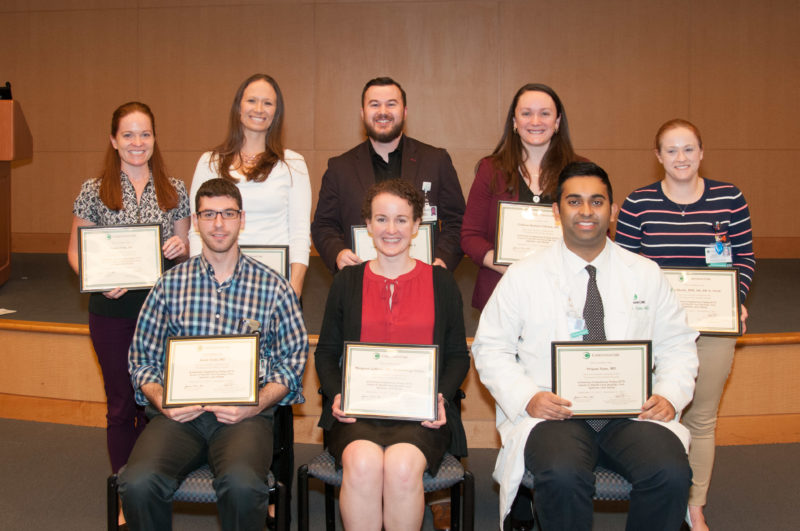
It’s All Greek to Me: Qualified Interpreter Services Use
This team sought to increase utilization and documentation of qualified interpreter services for limited English proficiency inpatients during daily encounters and at discharge on units 6A, 6B, 5A and 4C at Christiana Hospital to 50 percent by December 2017. Using a combination of interventions including increasing awareness, educating clinicians on units about access and resources, having unit-based project champions, and embedding identification of patients with limited English proficiency into the workflows on the four participating units, the team met their goal — moving from 9 percent at baseline to attaining 56 percent use by week three and 49 percent for their overall results.
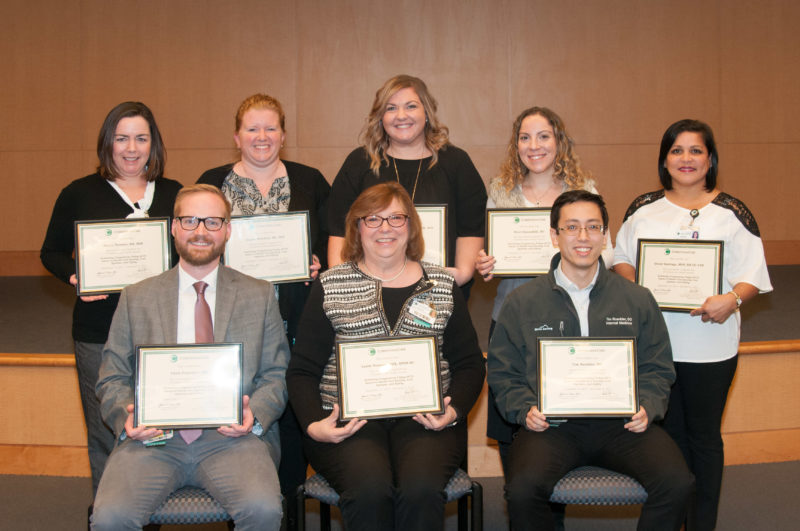
Handwashing Isn’t Everything: The Donning and Doffing Dilemma
This team sought to increase use of personal protective equipment (PPE) for contact isolation rooms on adult inpatient medicine units 5A and 5B by 50 percent within four weeks. Baseline observation data of Christiana Care employees revealed a correct PPE utilization rate of 14 percent, which doubled to 28 percent over the course of their brief intervention.
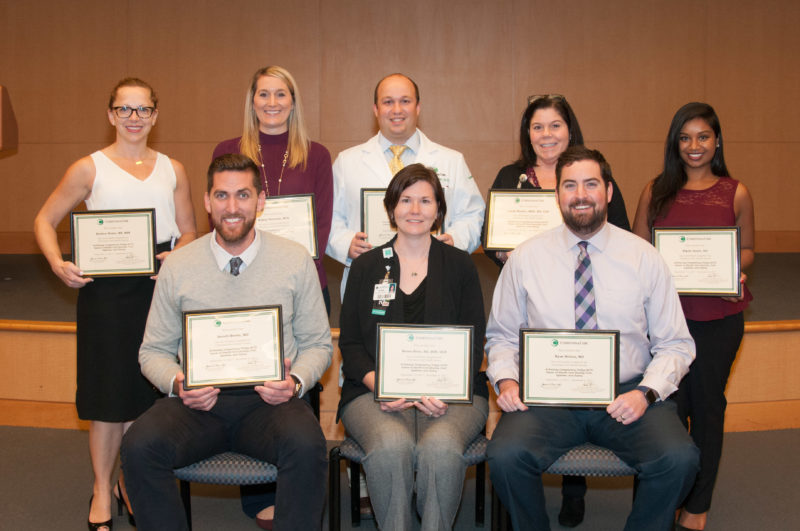
CellSavers: Saving One RBC at a Time
This project aimed to reduce the incidence of blood recollections due to hemolysis by 50 percent over a 30-day period in the Medical Intensive Care Unit.
The team designed a multifaceted intervention including increasing awareness of proper blood collection techniques through the use of posters and e-mails, followed by one-on-one in-services and reinforcement of optimal practice using a humorous, team-created instructional video.
There was a 24-percent overall decrease in blood re-collections by nursing during the intervention month.
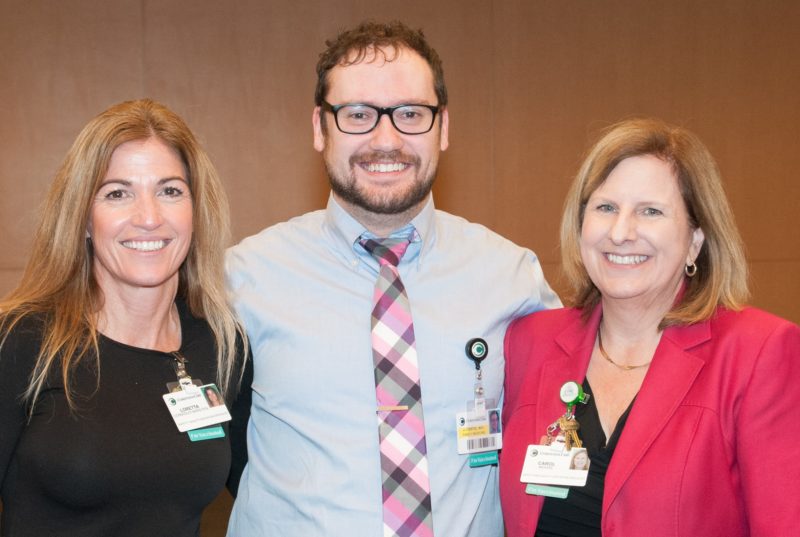
Jeremy Cristol, M.D., primary care quality and safety fellow, was awarded the ACT facilitator training program certificate of completion. Other team facilitators were Loretta Consiglio-Ward, MSN, and Carol Kerrigan Moore, MS, APRN-BC.
Theresa Fields, MSM was recognized for her education coordinator role, which is essential in organizing the course participants, speakers and facilitator training efforts, as well as the final presentations.
